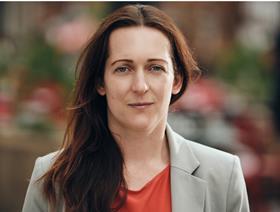The National Audit Office's latest report on family justice delivers a sobering assessment of a system struggling to meet the needs of vulnerable children and families. While there has been some progress in reducing court backlogs, the findings reveal persistent delays that continue to undermine the effectiveness of family courts across England and Wales.

Cost of delay
The numbers paint a stark picture. In 2024, family courts handled 15,980 new public law cases involving child protection and 51,473 new private law cases concerning parental disputes. These cases, which often involve vulnerable children facing domestic abuse or substance misuse issues, represent extremely complex and emotionally charged situations. Yet thousands of children remain trapped in legal proceedings that stretch on for years, with the NAO finding that 4,000 children are still involved in cases lasting over two years.
The financial implications are also concerning. This gap in understanding is proving costly for both families and taxpayers. According to the NAO, the government spent over £1.8 billion on the family justice system in 2023–24. When cases are resolved quickly, fewer complexities develop and fewer court applications are needed, ultimately reducing costs to taxpayers. However, prolonged proceedings create a whole list of additional expenses while children remain in limbo. This does not provide the protection and stability they desperately need. In short, the best interests of the children are not being met.
Legal aid cuts
A key factor contributing to these delays is the reduction in legal aid, which has led to more families appearing in court without legal representation. These self-represented cases often take significantly longer to resolve, as they typically involve complex emotional matters handled by individuals who lack legal training or experience.
These unrepresented parties are less likely to understand what constitutes a reasonable settlement, increasing the likelihood of cases proceeding to final hearings rather than being resolved through negotiation or mediation. The irony is attempts to save money by restricting legal aid have actually doubled legal aid spending in some areas, as cases drag on far longer than necessary.
Better data, better outcomes
The need for better high-quality data is paramount. However, the NAO report highlights a critical lack of effective data collection and without comprehensive data on case outcomes, timelines, and quality measures, it becomes near impossible to identify systemic issues or implement targeted improvements.
This lack of data also limits our understanding of what effective support looks like from a child's perspective. While judges, court staff, and professionals are committed to achieving the best outcomes for families, the system lacks a coordinated approach to ensure child-focused decision-making.
A call for change
The way forward requires more than gradual evolution. The government must take a broader approach that recognises family justice as a critical public service in need of proper investment. This means, investing in expanding the problem-solving approach of courts with more early and therapeutic intervention (the success of the pilot pathfinder model is a good example of this) as well as implementing comprehensive data collection systems, and ensuring that all professionals working within the system have the resources and training they need to deliver timely, effective justice.
Children and families deserve and need a justice system that works swiftly and fairly. The current crisis demands urgent action before more young lives are damaged by a system that, despite the best intentions of those working within it, continues to fail the most vulnerable.
Joanna Farrands is partner and head of the family law department at Moore Barlow































2 Readers' comments